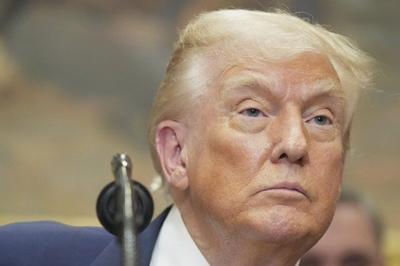WASHINGTON - U.S. President Donald Trump has increased tariffs on Canada to a staggering 35 per cent but a critical carveout is likely to shield most goods from the devastating duties.
The White House has said the tariffs won't be applied to goods that are compliant with the Canada-U.S.-Mexico Agreement on trade, also known as CUSMA.
Here's what that means for Canadian companies:
What is CUSMA compliance?
CUSMA was negotiated during the first Trump administration to replace the North American Free Trade Agreement.Â
Companies can claim preferential treatment under CUSMA if they meet its rules of origin. While it is different depending on the product, generally it requires a specific amount of the goods be made of products or with labour originating from Canada, Mexico or the United States.Â
ÎÚÑ»´«Ã½ 80 to 90 per cent of Canadian goods might be able to comply with CUSMA's rules of origin, said Michael Dobner, the national leader of economics and policy practice at PricewaterhouseCoopers Canada.
Not all exporters have filed the necessary paperwork to avoid the duties.
There's been an increase in businesses claiming preferential treatment under CUSMA but it's not clear exactly how much of Canadian exports are currently compliant.
Are any industries more at risk?
Dobner said there's no specific industry that he expects to be hit the hardest.Â
Certain companies may not be able to source input materials from North America to make their product. That means they would not be able to apply for preferential treatment under CUSMA and will face the 35 per cent tariff.
But Dobner said "it's the minority of the exports of Canada to the U.S."
What's the impact on small and medium-sized businesses?
Small and medium-sized businesses may have not applied for CUSMA preferential status before Trump's tariffs because the process can be burdensome for enterprises of that size.Â
Some small and medium-sized businesses might not meet CUSMA rules of origin requirements and don't have the financial flexibility to change their inputs to North American products.
Dan Kelly, president and CEO of the Canadian Federation of Independent Business, said many of these businesses were absorbing some or all of the costs associated with Trump's tariffs under the assumption that there would a resolution coming.
Kelly said some small and medium-sized businesses facing the 35 per cent tariff may have to stop selling into the United States.
This report by The Canadian Press was first published Aug. 1, 2025.

